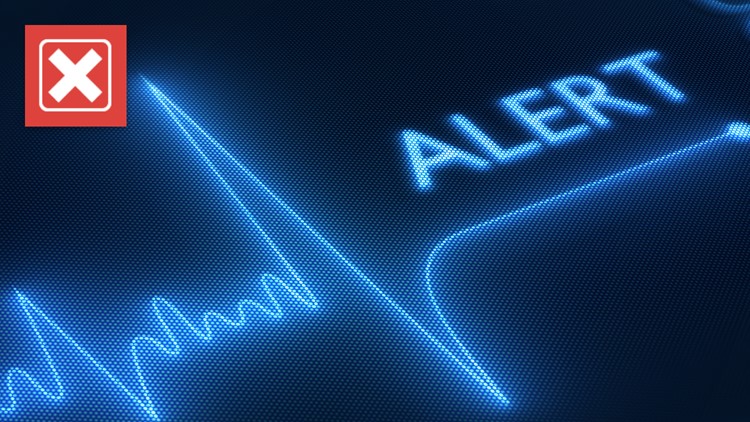On June 8, The Daily Mail, a UK-based tabloid, published an article with the headline: “Healthy young people are dying suddenly and unexpectedly from a mysterious syndrome – as doctors seek answers through a new national register. ” The article was about Sudden Adult Death Syndrome (SADS), and has been shared hundreds of times across social media. Candace Owens, a conservative influencer, shared the article on Facebook and wrote, “Just wanted to publicly state that my children are and will remain completely unvaccinated and that I truly wish my parents had made different decisions for me.
In other news— have you read about how young adults are dying suddenly and it’s a complete mystery to doctors as to why that’s happening?” SADS has been trending on Google since the article was published, and some social media users have wondered if SADS could be linked to vaccines . Is Sudden Adult Death Syndrome linked to vaccines? No, Sudden Adult Death Syndrome, also known as Sudden Arrhythmic Death Syndrome, is not linked to vaccines. SADS happens when someone suffers from sudden cardiac death.
It’s a syndrome that has been studied for decades. Sudden Arrhythmic Death Syndrome or Sudden Adult Death Syndrome (SADS) is a term used to describe unexpected cardiac death in young adults, Mayo Clinic says . According to the Cleveland Clinic , this occurs most frequently in adults in their mid-30s to mid-40s, and affects men twice as often as it does women.
It can also occur in people younger than that, such as teenage athletes who suddenly die while playing a sport. SADS is not the same thing as Sudden Infant Death Syndrome, according to the SADS Foundation. SIDS refers to the unexplained deaths in the first year of life.
SADS conditions are inherited genetic arrhythmia conditions that occur when the electrical system of the heart is not working properly, the cause of SIDS is still largely unknown, SADS Foundation told VERIFY in an email. The most common cause of SADS is an arrhythmia or electrical disturbance in the heart, Payal Kohli, MD, told VERIFY. Kohli is a non-invasive cardiologist, and founder and medical director at Denver-based Cherry Creek Heart.
She is also an assistant clinical professor of medicine at the University of Colorado in the department of cardiology. “I’m really glad to hear that [SADS] is trending online. Because for me as a cardiologist, I have known about this for decades,” Kohli said.
“It is usually something that runs in families where you see some kind of an acquired, either electrical problem, or something called a cardiomyopathy, which is a problem with the heart muscle, leading to sudden unexplained death in young individuals. ” SADS has existed long before the COVID-19 outbreak, and subsequent vaccines were available. In an email to VERIFY, the SADS Foundation said the first documented case of SADS was described in Germany in 1856 and had been researched in the U.
S. since the early 1970s. The SADS Foundation is an organization that provides services to educate the public about SADS.
“Over two years into the pandemic, there’s been no indication in the largest [vaccine] programs in the world of an increase in death from these conditions,” Michael J. Ackerman, MD, Ph. D.
, with the Mayo Clinic College of Medicine told VERIFY via the SADS Foundation. SADS is not reported as an adverse reaction of the COVID-19 vaccines, according to the Centers for Disease Control and Prevention Vaccine Adverse Event Reporting System (VAERS). VAERS was created in 1990 with the goal of detecting possible safety issues with vaccines licensed in the U.
S. It is co-managed by the CDC and FDA. Kohli told VERIFY she doesn’t know why anyone would make that connection between SADS and vaccination.
“The link between vaccination and Sudden Arrhythmic Death Syndrome, it’s mind blowing to me where that came from, because we’ve been doing vaccinations for decades. And we have not seen that vaccinations result in this particular syndrome, which is really by definition, an arrhythmia that’s caused without an unexplained cause, and usually genetic,” she said. Any condition that puts a strain on the heart or damages heart tissue can increase the risk of sudden death.
Mayo Clinic says there are some conditions that can lead to sudden cardiac death in young people are: “If you have somebody in your family, a parent, a sibling, a cousin, or an aunt and uncle who died suddenly, for unexplained reasons, those are the types of populations in which we really ramp up our screening efforts. The reason we also tend to focus on athletes is not so much so because necessarily, they have a higher risk of having [SADS], but because they may have a higher risk of dying from it, if they do have it. Because when you’re playing athletic, competitive sports, your heart is undergoing a little bit of a stress test … that can trigger an electrical problem if you have an underlying genetic predisposition,” Kohli said.
To screen someone for a health condition, a doctor or cardiologist would: Putting all these tests together, a doctor can determine if an individual person could be at risk for a heart arrhythmia that could cause Sudden Arrhythmic Death Syndrome, Kohli said. Mayo Clinic advises for people to look for warning signs of any conditions that could result in SADS: The VERIFY team works to separate fact from fiction so that you can understand what is true and false. Please consider subscribing to our daily newsletter , text alerts and our YouTube channel .
You can also follow us on Snapchat , Twitter , Instagram , Facebook and TikTok . Learn More » Text: 202-410-8808.
From: wfaa
URL: https://www.wfaa.com/article/news/verify/health-verify/sudden-adult-death-syndrome-not-linked-to-vaccines/536-7f91945f-a22a-4991-a291-ae7ed32e42c4



